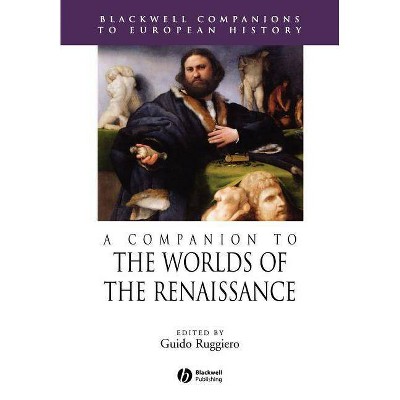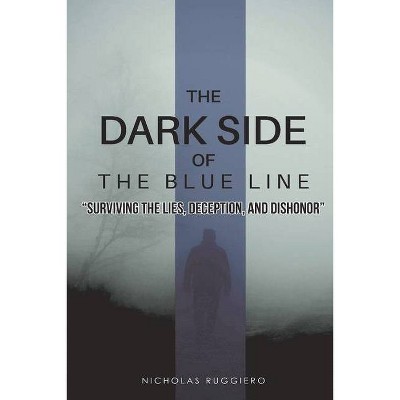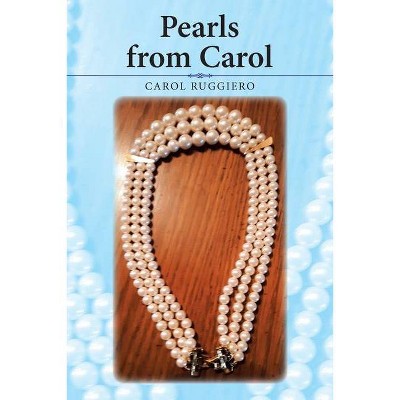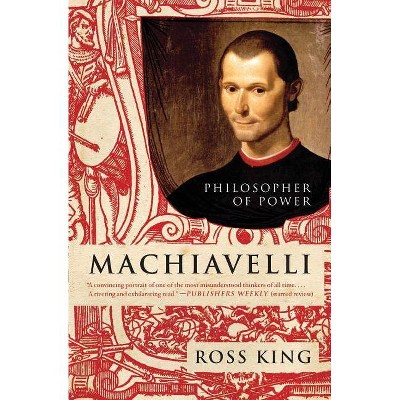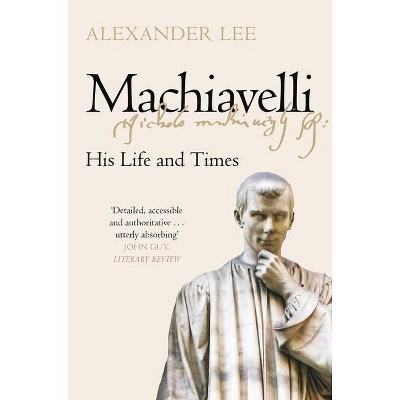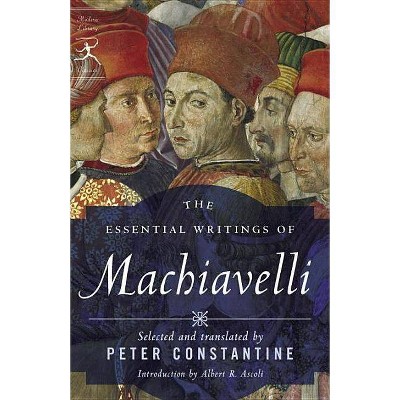Machiavelli in Love - by Guido Ruggiero (Paperback)
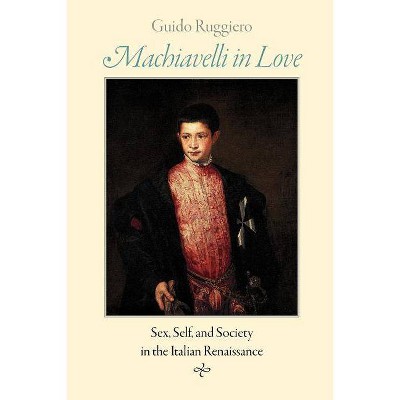
Similar Products
Products of same category from the store
AllProduct info
<p/><br></br><p><b> About the Book </b></p></br></br>Ruggiero's challenging reinterpretation of this canonical figure, as well as his unique treatment of other major works of the period, offer new approaches for reading Renaissance literature and new understandings of the way life was lived and perceived during this time.<p/><br></br><p><b> Book Synopsis </b></p></br></br><p> <i>Machiavelli in Love</i> introduces a complex concept of sex and sexual identity and their roles in the culture and politics of the Italian Renaissance. Guido Ruggiero's study counters the consensus among historians and literary critics that there was little sense of individual identity and almost no sense of sexual identity before the modern period. </p><p>Drawing from the works of major literary figures such as Boccaccio, Aretino, and Castiglione, and rereading them against archival evidence, Ruggiero examines the concept of identity via consensus realities of family, neighbors, friends, and social peers, as well as broader communities and solidarities. The author contends that Renaissance Italians understood sexual identity as a part of the human life cycle, something that changed throughout stages of youthful experimentation, marriage, adult companionship, and old age. </p><p>Machiavelli's letters and literary production reveal a fascinating construction of self that is highly reliant on sexual reputation. Ruggiero's challenging reinterpretation of this canonical figure, as well as his unique treatment of other major works of the period, offer new approaches for reading Renaissance literature and new understandings of the way life was lived and perceived during this time.</p><p/><br></br><p><b> From the Back Cover </b></p></br></br><p> <i>Machiavelli in Love</i> introduces an exciting new concept of sex and sexual identity and their roles in the culture and politics of the Italian Renaissance. Guido Ruggiero's study counters the consensus among historians and literary critics that there was little sense of individual identity and almost no sense of sexual identity before the modern period. </p><p>Ruggiero's intent in <i>Machiavelli in Love</i> is much more than a recasting of Machiavelli: it is to examine self and identity in the Renaissance . . . One can applaud his insertion of the playful into our sense of the Renaissance.--<i>Renaissance Quarterly</i></p><p>One of the book's achievements is that it shows the extent to which the literature of high culture had deep roots in everyday experience. Few will ever again doubt the importance of sex in creating Renaissance identity.--<i>Journal of Interdisciplinary History</i></p><p>This provocative and complicated work about sex and self-fashioning sits at the nexus of historical and literary studies . . . It challenges readers to rethink both traditional literary interpretations and historical understanding.--<i>Choice</i></p><p> <b>Guido Ruggiero </b>is professor and chair of the Department of History at the University of Miami. He is coeditor and cotranslator of <i>Five Comedies from the Italian Renaissance, </i>also published by Johns Hopkins, and author of several books, including <i>Sex and Gender in Historical Perspective, Binding Passions: Tales of Magic, Marriage, and Power at the End of the Renaissance </i>and <i>The Boundaries of Eros: Sex, Crime, and Sexuality in Renaissance Venice</i>.</p><p/><br></br><p><b> Review Quotes </b></p></br></br><br><p>Add to your reading list Johns Hopkins' study of sex, self, and society.</p>-- "Bibliotheque d'Humanisme et Renaissance"<br><br><p>Having to think creatively and act daringly under changing circumstances, this diaspora presents scholars with a fascinating and complex challenge of probing a spectrum of hybrid, fluid, and shifting identities.</p>--Louis Haas "Sixteenth Century Journal"<br><br><p>Innovative in its technique, subtle and revealing in its arguments, and whenever it turns to the theme of sodomy, throws off brilliant light.</p>--Randolph Trumbach "American Historical Review"<br><br><p>Readers of <i>Machiavelli in Love</i> will certainly come away with a feeling for the playfulness of Renaissance sexuality. One of the book's achievements is that it shows the extent to which the literature of high culture had deep roots in everyday experience. Few will ever again doubt the importance of sex in creating Renaissance identity.</p>--William J. Connell "Journal of Interdisciplinary History"<br><br><p>Ruggiero provides challenging accounts of public ethics and private morality by analysing a selection of literary and archival material. Armed with humour and determination, he deciphers the subtle codes of Renaissance narratives, and comments on the various ways in which identity and sexuality were constructed, understood and politicised.</p>--Stamatoula Panagakou "Political Studies Review"<br><br><p>Ruggiero's intent in <i>Machiavelli in Love</i> is much more than a recasting of Machiavelli: it is to examine self and identity in the Renaissance . . . One can applaud his insertion of the playful into our sense of the Renaissance.</p>--Thomas Kuehn "Renaissance Quarterly"<br><br><p>Suggestive new readings of an unusual range of texts.</p>--Gary Cestaro "Journal of the History of Sexuality"<br><br><p>This is a veteran historian's book of literary speculation . . . It is also, I suspect, a teacher's book. It favors texts that enliven an English-speaking classroom on Italian history both because they support good lessons and because they bring students into engagement with the Italian past. How better to stir up Anglo-Saxon students, after all, than with tales, tragic or comical, that touch on passion, tenderness, deception, loss, or ribaldry!</p>--Thomas Cohen "H-Italy, H-Net Reviews"<br><br><p>This provocative and complicated work about sex and self-fashioning sits at the nexus of historical and literary studies . . . It challenges readers to rethink both traditional literary interpretations and historical understanding.</p>-- "Choice"<br><br><p>Ultimately makes a remarkable case for the integration of individual and societal identity within an understanding of the Italian Renaissance.</p>--Jason Hardgrave "European History Quarterly"<br><br><p>Written in the accessible narrative style that Ruggiero's readers will recognize, the study is a lively investigation that raises a central question about how the construction of self was dependent on sexual reputation.</p>--Gerry Milligan "Annali d' Italianistica"<br><p/><br></br><p><b> About the Author </b></p></br></br><p> <b>Guido Ruggiero </b>is professor and chair of the Department of History at the University of Miami. He is coeditor and cotranslator of <i>Five Comedies from the Italian Renaissance, </i>also published by Johns Hopkins, and author of several books, including <i>Sex and Gender in Historical Perspective; Binding Passions: Tales of Magic, Marriage, and Power at the End of the Renaissance; </i>and <i>The Boundaries of Eros: Sex, Crime, and Sexuality in Renaissance Venice</i>.</p>
Price History
Price Archive shows prices from various stores, lets you see history and find the cheapest. There is no actual sale on the website. For all support, inquiry and suggestion messages communication@pricearchive.us
